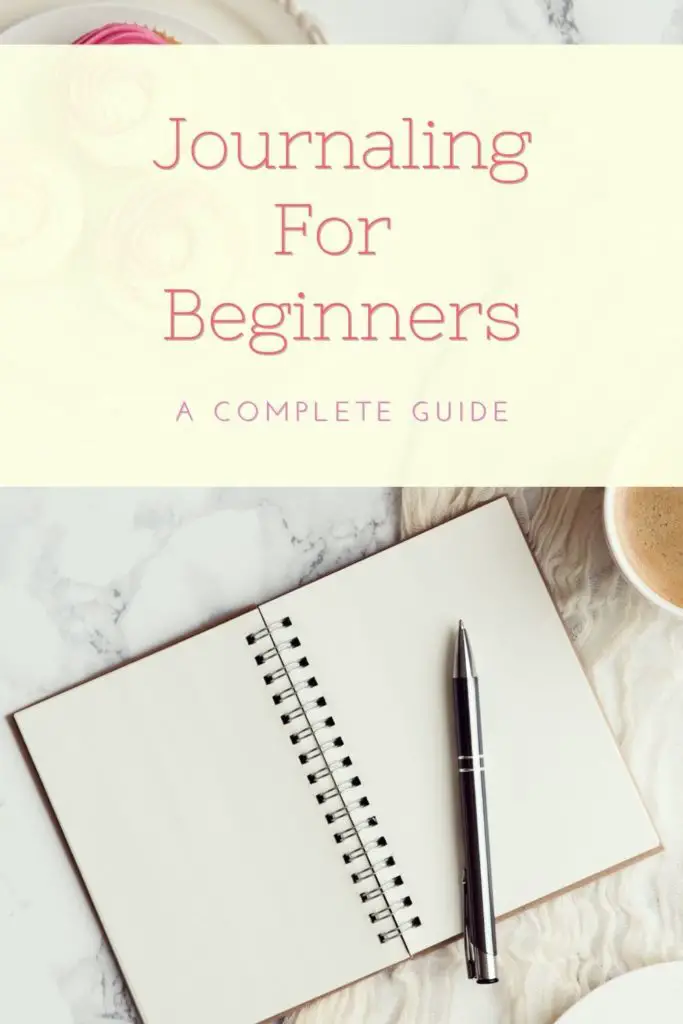Many love the idea of journaling for self-discovery and stress relief but are never able to take that next step to make it happen. While at first glance the idea seems simple enough, it ends up intimidating many people. There’s writing, and figuring out what to write, and then actually turning journaling into a habit. I promise though that once you get past this and start journaling, you’ll wonder how you ever got through your days without it.
Journaling for beginners may be a lot at first, but soon it becomes a way to relax, a way to become more emotionally intelligent, and a way to manage your days.
That may sound like a lot to expect from journaling, but in fact, studies have found a lot more benefits than that. Honestly, it’s a bit shocking how much of an effect a journaling habit can have on your life.
In this article, we’ll break into the benefits of journaling–backed up by scientific studies. We’ll also look into how to journal, what counts as journaling, how to actually make journaling a habit, and what journaling supplies you might want to have on hand.
This is the complete guide to journaling, and it’s going to set you up for success. Let’s dive in.
Table of Contents
What Journaling Is
So, what counts as journaling?
Journaling is writing things down in a notebook. It’s that simple.
Now, there are ways to approach this that may be more beneficial to you than others. Below, when we break down the benefits of journaling and talk about some tips for how to journal, we can look more into approaches that may get you the benefits you’re working for.

If you’re journaling for relaxation, there may be ways that get you better results than others.
But with that in mind, all you actually need to do is take out a notebook, any notebook, and grab a pen. You can write down your thoughts for even five minutes. And there you go, you’ve journaled.
Journaling for Beginners: What To Ask Yourself Before You Start
Why do you want to journal?
You may not know the answer to that right now, and that is fair and valid. You’re allowed to start journaling without yet knowing the answer. Below, when we break into the benefits of journaling, you’ll see that one is that you’ll get to know yourself better. It will make answering questions like this easier for you.
Still, it can be helpful to ask yourself a few things.
- Why is starting a journal important to me?
- What do I hope will happen when I start journaling?
- What have I gotten out of journaling in the past?
Getting clear on why you’re considering doing this can be helpful as you move forward.
The Many Benefits of Journaling
Journaling can make it easier to understand your own life experiences. When you remove your thoughts from your head and put them down on paper, the world can seem a lot more manageable.
The more we understand about what journaling can do for us, the more we’ll understand about how it impacts our lives, how to journal in ways that give us the most benefits, and why we should stick with it when it falls out of habit.
Journaling Can Reduce Stress Levels
First, let’s remember that stress harms our bodies. It isn’t something we can ever underestimate. Mayo Clinic has outlined the ways stress can give us headaches, fatigue, upset our stomachs, give us trouble sleeping, cause us to withdraw socially, change our appetites, and make it hard to focus. Those are just some of the ways stress can harm our bodies. It may be a natural part of life, but we can reduce it with intentional practices.

In several studies, researchers have found that journaling helped manage anxiety, reducing stress, and as a practice for coping with depression.
Writing about how we feel has been shown to help people process their feelings. This can reduce stress, according to studies.
One study illustrated how this works quite well. The researchers had two groups of students. Both groups were told to write things down for 10 minutes before taking a test. One group was told to write down their feelings. The second group was told to write about what they believed would be on the test. The students who wrote about their feelings performed better on the test. In fact, the students who wrote about their anxieties did measurably better.
What can we take from this? By writing out our feelings in a journal, we can reduce stress and perform better in our lives.
Journaling Can Improve Memory
Our brains like it when we journal. A study found that people with a journaling practice had improved memories.
It doesn’t seem to be just that we remember better what we write down, either. Our brains themselves have improved recall when we journal regularly.
Our Physical Bodies Are Healthier
Not just our brains, but our organs.
That may surprise you, which is understandable. It sounds far fetched. But it’s true. Remember that stress releases the hormone cortisol in your body. This has a lot of effects on your health.
In a surprising study from 2013, researchers studied patients who were having medically necessary biopsies. The control group did nothing unusual. The second group was asked to journal for 20 minutes for three days in a row two weeks before their biopsies.
Eleven days after the biopsies, 76% of the adults who journaled were recovered. Meanwhile, 58% of the control group had yet to recover.
What the researchers decided from this was that it seemed one hour of journaling over three days helped the participants make sense of the medical events in their lives. This reduced their stress levels, which resulted in improved healing capabilities for their bodies.
That’s a pretty big benefit for journaling.
Journaling Helps You Learn About Yourself
When you journal your feelings, you’ll get more practiced at recognizing what you’re feeling and when. This can help you learn to manage your feelings. It can also help you structure your days better, become more adaptive to situations, and become more understanding of the feelings of those around you.
Psychologists have done studies that have found people who journal understand their worlds better. This reduces stress as well since they become less overwhelmed.
There Is More Than One Way to Journal
From scientific studies, we’ve found that when people express their feelings in a regular writing habit, they get more benefits. If you want to take up journaling for stress relief and relaxation, it then makes sense that journaling your feelings is a good tip to keep in mind.
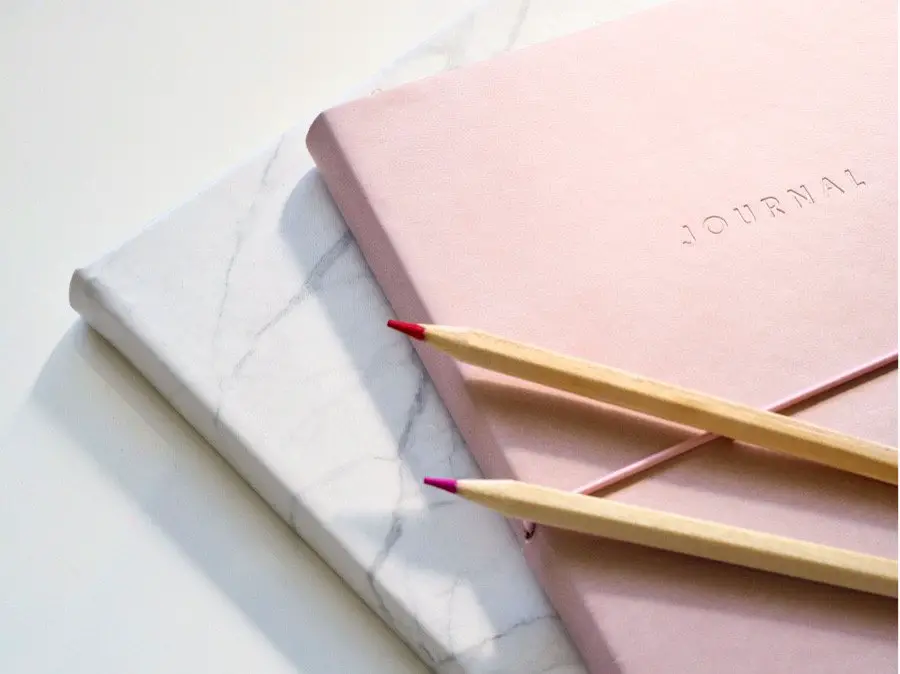
That doesn’t mean every entry has to be a deep look into the troubles of your heart. You have lots of feelings. Do you feel stressed about a recent phone call? That counts. Are you grateful your dishwasher was recently fixed and now gets the glasses crystal clear? That counts. Are you bored and not sure what to write right now? This is also acceptable! In your journal, you make the rules. Give yourself the freedom to be authentic with yourself. It’s just you on the page.
That being said, let’s look at some more angles and strategies you can use to approach journaling for beginners.
Keep in mind that if you don’t like one of these tactics, just move on to the next one. Also, you’re not committed to one that starts working for you. If you feel like doing something different one day, do what you want! These strategies can just make it easier to avoid writer’s block when you’re starting a new entry.
Start with a gratitude journal. These can be super simple lists or go into more depth. What are you feeling grateful for at this moment? A lot of people may write longer journal entries that take different angles, but start or end each entry with a brief gratitude list. This is a strong practice for stress relief since it reminds you of things you’re genuinely grateful for in your life. We can all use a little more gratitude, right? If you are interested in this kind of journal, check out my article ‘Do Gratitude Journals Really Work? All You Need to Know.’
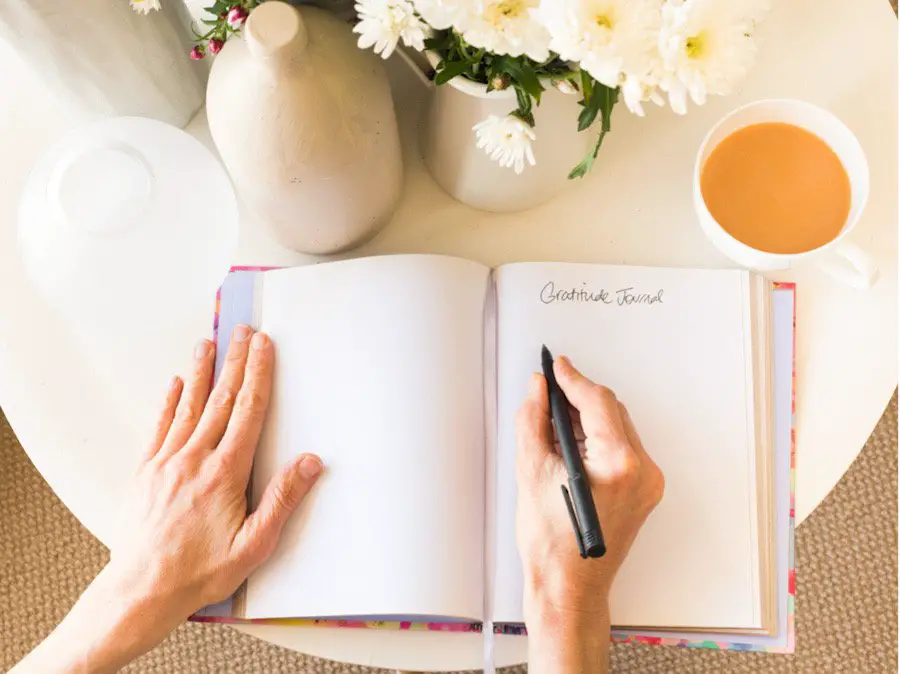
Consider writing in a guided notebook. For example, there is The Five Minute Journal, but there are a lot of other options out there, too. In this type of journal, there will be sentences with blanks you can fill in. This is a brief journaling habit. It can be an easy way to ritualized journaling and check-in with yourself. It doesn’t require you to write very much. If you’re one of the beginning journalers who are uncomfortable filling blank pages, a guided journal with brief prompts can be an easy way to start journaling.
A lot of more experienced journals may keep two journals: one with blank pages and one that is guided. They find that they benefit from the short daily check-ins with their five-minute entries, but also come to appreciate spilling all their thoughts in long-form in a second daily session.
Try writing “Morning Pages”. As the name suggests, this is a strategy where you specifically try writing first thing in the morning. While writing with a timer has been shown to get the best results and is our general recommendation for beginners, the “Morning Pages” strategy uses a page limit. This is usually three pages. Your goal then is to fill the pages of your journal with every thought that comes into your mind. In this strategy, you need to journal first thing when you wake up in the morning.
A bullet journal. Are you intimidated by the idea of writing long, wordy entries? Are you just “not a writer”? The more you journal, the more you may get past this. That being said, there’s nothing wrong with journaling in lists, or using incomplete sentences, funky grammar, and creative spelling! With a bullet journal, the idea is to organize your entry into lists with bullet points. A lot of people use this for planning their days and then tracking what gets done. This can help you visualize what’s happening, remind yourself of how much you actually are doing, and keep you from running over to-do lists in your head all day.
To take advantage of emotional release and to get the stress relief benefits of journaling, you can keep a section of your daily bullet journal for writing a brief list of events and what you’re feeling about them. In the emotional square, you can write, “annoyed at grocery store for rearranging their shelves” and “wish shoes were free” and “dinner with friends was amazing <3 <3 <3”.
This is your journal. You can write in it however makes sense to you.
That being said, you can also experiment with emotional release writing in the long-form. The more you do this, the easier it will get. A strong strategy for approaching this is to set a timer. You have to write for ten minutes. You can’t stop the pen from moving. But you can write anything that comes into your mind. It’s completely normal to write down “I don’t know what to write” a few times when you get stuck. Just keep going.
Start with a prompt for yourself. Ask yourself what you did this morning. Ask yourself what you are looking forward to for the rest of your day. Ask yourself what you wish had been different today. Ask yourself how you’re doing with managing your stress levels and approach that head-on.
The more you write down the positive things in your day, the more you’ll recognize them as they’re happening. The more you write down things you’re unhappy about, the better you’ll manage your emotions. You’ll see the feelings for what they are, put them in a better perspective, and be able to either let them go or shrink them down to a more manageable size.
How to Start Journaling – Step By Step
Like anything new you bring into your life, it’s time to make a plan.
Step One: Get Supplies

Get yourself a journal and a pen.
You may be someone who enjoys supplies like stickers. Or you may be someone who enjoys drawing, coloring, or otherwise adding flair to the pages. If that’s your thing, go ahead and do you!
If you’re going to bullet journal, you probably want a blank journal with either graph pages or blank pages. If you’re going to draw, you want blank pages.
If you’re just going to write long-form, you likely want lined pages.
You can get a journal with a pretty Moleskine cover or with a cartoon character on the front. A lot of people find that buying a cheap notebook removes some of the pressure so they feel more able to write whatever comes to mind. Others find that a journal with a soft cover and thick paper makes them much happier. There is no right and wrong here, so do what you feel fits for you. You can also always change this later, so whatever works.
You can also find journals designed for bullet journaling or ones that come with writing prompts if that makes you more comfortable.
You’ll likely find that over time, you develop feelings about what the perfect pen is. To start with, just go with whatever you have or whatever appeals to you. Gel pens will dry slower, so if you’re left-handed, you’ll smear ink across the page. They do write very smoothly, though. So, this is a personal preference.
Step Two: Choose When You Will Journal
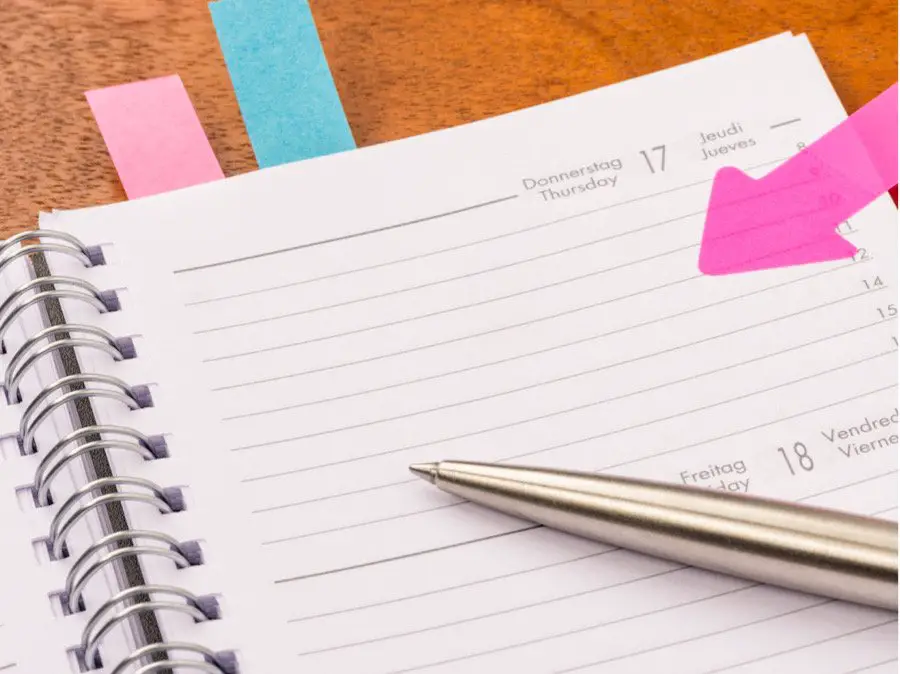
Do not underestimate this! It may be the most important part of journaling for beginners
Is there a spot in your day where you can set aside twenty solid minutes for journaling? While this is ideal, it may not work for you at the moment. That’s okay. Find a spot where you can consistently set aside five minutes and start there. Yes, journaling for five minutes completely counts.
There is a section of this article below about how to stack habits to make journaling a more regular habit for your life.
Step Three: Set a Timer
You know that you’re going to write for five minutes, ten minutes, or twenty minutes. Whatever your time schedule is, set it on an alarm. This does a few things for you, but the key here is that it will keep you from looking at the clock or doing anything else.
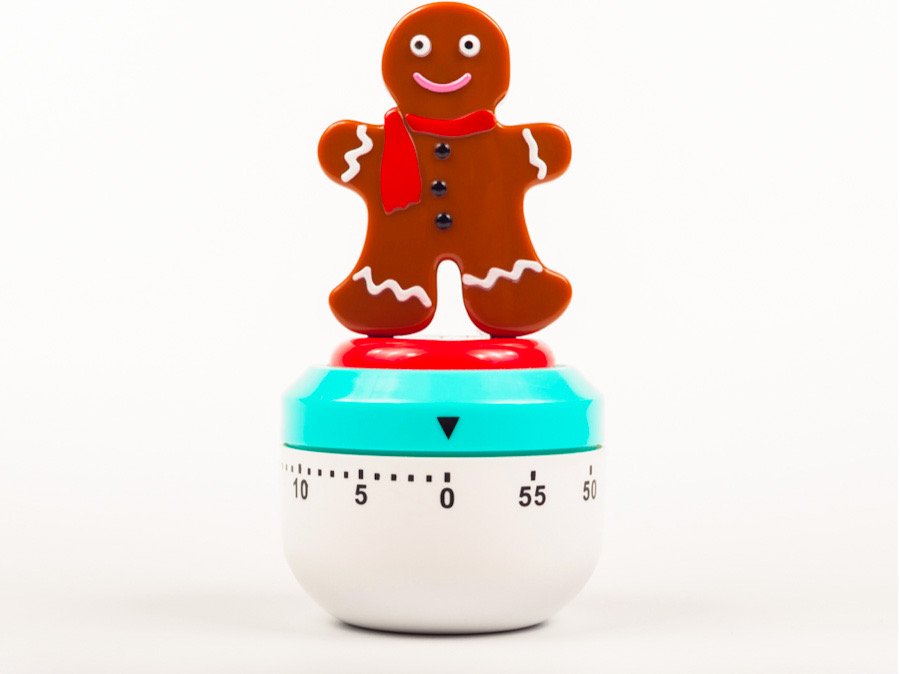
With a timer set, you know that there is nothing else you need to focus on except journaling during this time. Your timer gives you permission to be present and focus. That’s important for any kind of writing.
Step Four: Write

Yes, just go ahead and write. It’s that hard and that simple.
Move the pen across the page: the more words you put down, the easier it becomes to add more. You’ll soon find some magic pouring out of your pen and thoughts.
Questions About How to Journal
Let’s be real. The above steps are simple and get you going. But writer’s block is a real thing, right? And journaling certainly makes us vulnerable. Let’s go ahead and break into some tips and common questions for moving forward.
What Do I Even Write?
Maybe you write a gratitude list, maybe you take up bullet journaling, or maybe you decide to write all your feelings.
Some days, those formats won’t be enough. Your brain will be blank. You’ll be tired. What do you write?
It can be a good idea to either write down or print off a list of journaling prompts. You can write these on the first page in your journal so you can easily flip to them or keep the printed list tucked in the back.
These can be about your day, but they don’t have to be about anything in the present. You can ask yourself questions like, “What do I wish I knew a year ago?” or “What would five-year-old me think of this room?”.
Use these prompts to get you writing. It may be that you write entirely based on the prompt. Other days this may lead you into writing other things. The point is to get the pen moving and keep it moving until you finish your session.
How Much Time Do I Need to Journal?
In the section on setting a timer, it was said that you can journal for five minutes or twenty. But what gets you the best results?
If all you have is five minutes, then journaling for five minutes is better than not journaling at all.
However, for the greatest benefits, fifteen to twenty minutes is recommended. Studies found that even journaling on just three to five occasions for fifteen to twenty minutes each time over a four-month period was enough to lower blood pressure and improve liver function. Imagine what a daily habit can do for your stress levels!
Do I Have to Write On Paper?
You don’t have to do anything in any particular way. This is your journaling practice.
Some people prefer journaling on their computer or phone rather than writing on paper. There are certainly be pros and cons to both methods and your can learn more about it in my article ‘Journaling: Computer Vs. Paper – Pros and Cons and How To Decide.’
That being said, yes, it’s a good idea to write on paper. It’s not a familiar thing for most people these days, but if you can get yourself to do it, it does get the best results.
Studies have found that when we write with a pen and paper, we stimulate a part of the brain called the Reticular Activating System (often abbreviated to RAS). This helps us focus and filter out information. We do a lot better journaling and keeping going when we write this way.
It’s also been found that we do a better job keeping ourselves from editing when we write on paper. And you don’t ever want to edit when you’re writing in your journal. Sorry, the perfectionist in us doesn’t get to take up space on these pages.
If you absolutely must write on the computer instead, you might want to try a distraction-free writing application. Ommwriter is a popular choice.
Keep Your Journaling To Yourself
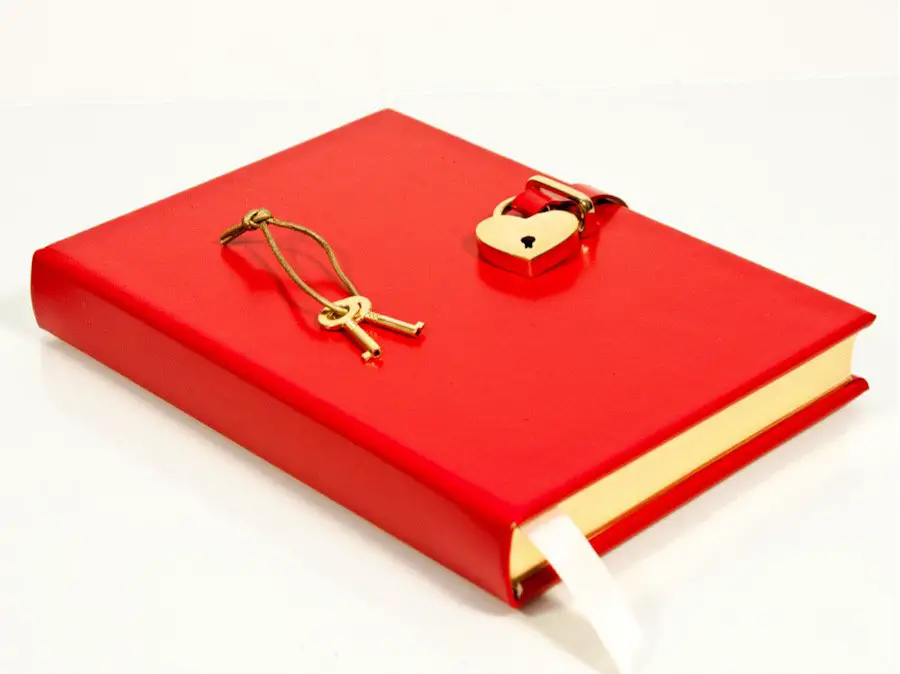
You do not need to share your journal with anyone else in your life.
In fact, it’s better if you don’t.
The only exception to this is if you are journaling as part of a recommendation from your therapist. Then, you may wish to use your journal in your therapy sessions and share it with them. This is something for you to discuss with them ahead of time and be clear about.
But that’s it. That’s the only exception.
Why is this so important?
For journaling to be really effective in your life, you need to feel free to write down absolutely anything. When we’re in our heads or writing in our journals, we may discover we have thoughts we wouldn’t even share with our very best friends.
And you know what? That’s okay. You’re allowed to keep some of your thoughts private. However, when we keep all our private thoughts in our heads, sometimes they cause us stress and we can’t let them go.
When we take up journaling for relaxation, we have a safe space to share all of our thoughts, just with the page. No one else needs to read them. By keeping this pact with ourselves, we maintain the freedom to write down anything.
Once we share our journals even once, we break that trust with ourselves. This makes it harder to be completely honest.
Keep your journal somewhere secure. Even if all you usually write is your to-do lists, you will always know you have this safe space available to you.
How to Make Journaling a Habit
You love the idea of journaling for relaxation. You know how to journal. And you want to do it. You set the intention. But then, it just doesn’t happen.
This is a common story.
Lots of people buy the prettiest pens and journals imaginable, only to stack them up in a corner. This turns into something to feel guilty about. We aren’t here to cause stress, we’re here to resolve it. So let’s make that happen for real, okay?
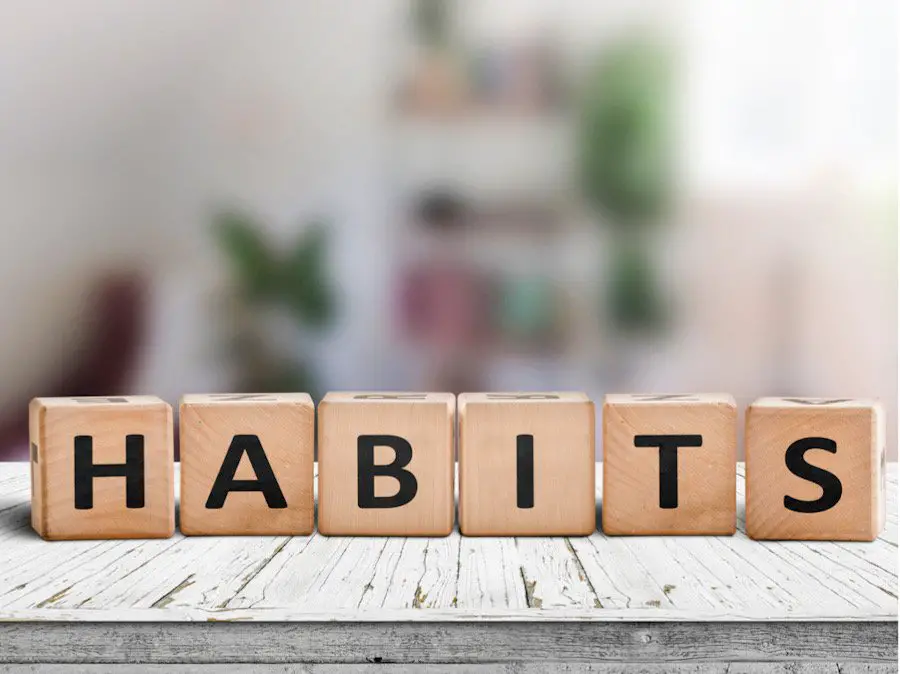
How do people make journaling a habit?
One key strategy is to do what James Clear calls “Habit Stacking”. He wrote about this in his book “Atomic Habits”. The idea is pretty simple. You already have some habits. Perhaps you enjoy your first cup of coffee at the same time every day. Another example might be that you watch television in the evening around the same time. There are also mealtimes, going to work, coming home, and other events that punctuate your days.
The idea is to take something you’re already doing and then attach the new habit you’re trying to form with the old one.
So now, every time you go to grab your coffee in the morning, you make sure to sit at the table in your kitchen with your journal in hand.
Or after you brush your teeth at night, you know how to grab your journal on your way to sit in the chair in the corner for the next fifteen minutes.
If you just say, “I’m going to journal in the evenings”, that may be too vague for you to follow through and automatically do on a regular basis. By attaching your new habit to one you’ve already formed, you set yourself up for success.
If you want to know more about how to journal consistently, check out my article ‘How to Journal Consistently – Making Journaling a Lifelong Habit.’
The Right Tools for Your Journaling Journey
Up above, we’ve covered this in some of the steps. But a brief recap here includes:
- A journal, with either blank, lined, or graph pages.
- Alternatively (or in addition) a guided journal with prompts.
- A pen you enjoy. This may be a gel pen, a colored pen, or even an old one you have around the house.
- Optional: A printed list of journaling prompts.
- Optional: Stickers, colored pencils, or anything else that brings you joy!
Get Started Journaling For Stress Relief and Relaxation
You know everything you need to know now! You are officially educated in the world of journaling. Now, the only thing you need to do to become an expert is to start doing it.

I’ll let you in on an insider’s secret, though: you may never feel like an “expert” on journaling. It’s simply too free form when done well to feel like anyone is an “expert”. That’s the beauty of journaling: there is no ultimate “right” way to do it.
While we can talk about how to journal so that you can get started, you’ll find that as you develop the habit, you develop your own ways of journaling. Over time, you’ll develop new needs from your journaling habits. You may find that you actively keep three different journals for three different purposes. Or you may find that you fill one book every single week.
Whatever works for you, the important thing is to make journaling a habit and let the benefits enrich your daily life. Enjoy!


